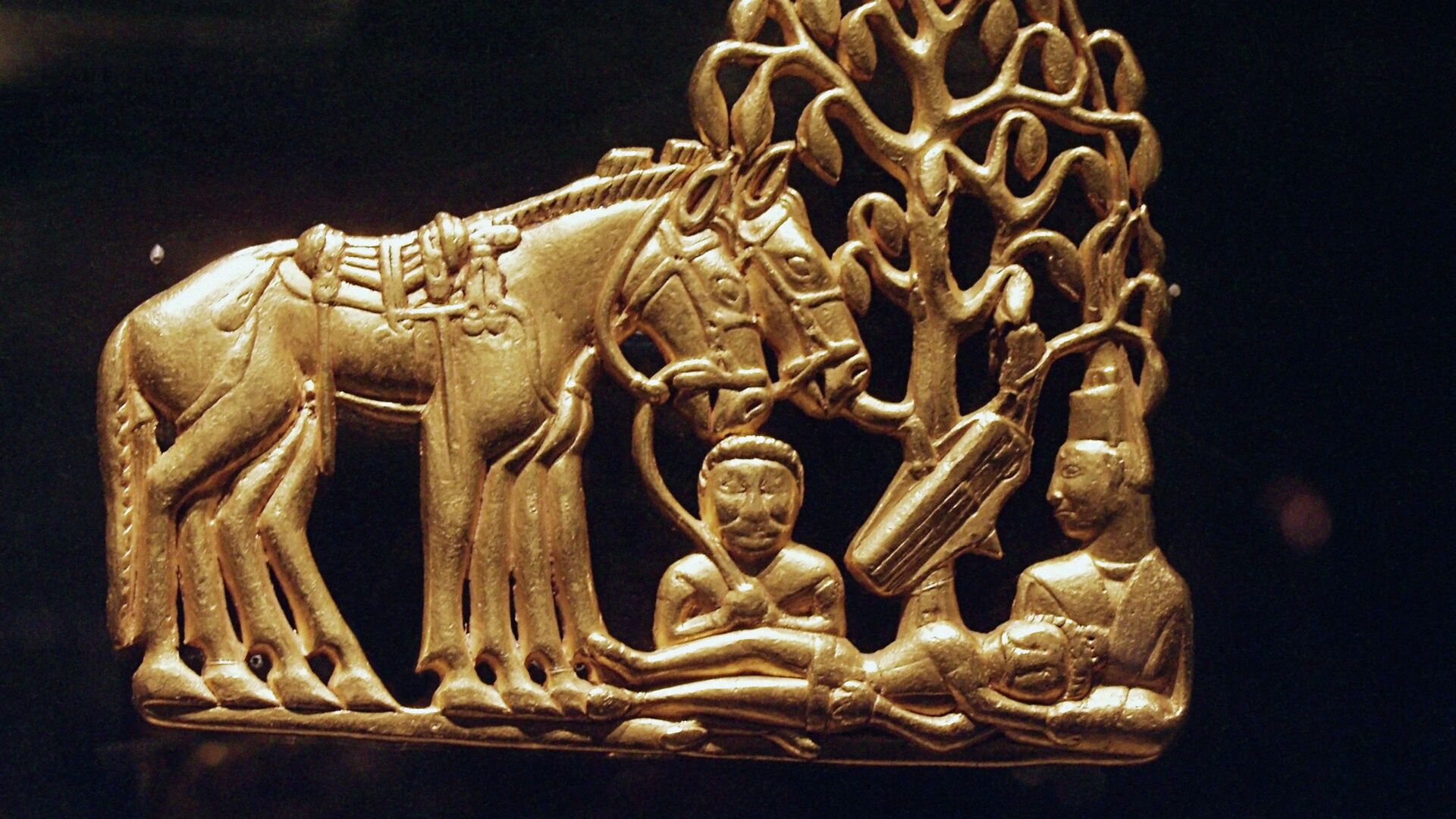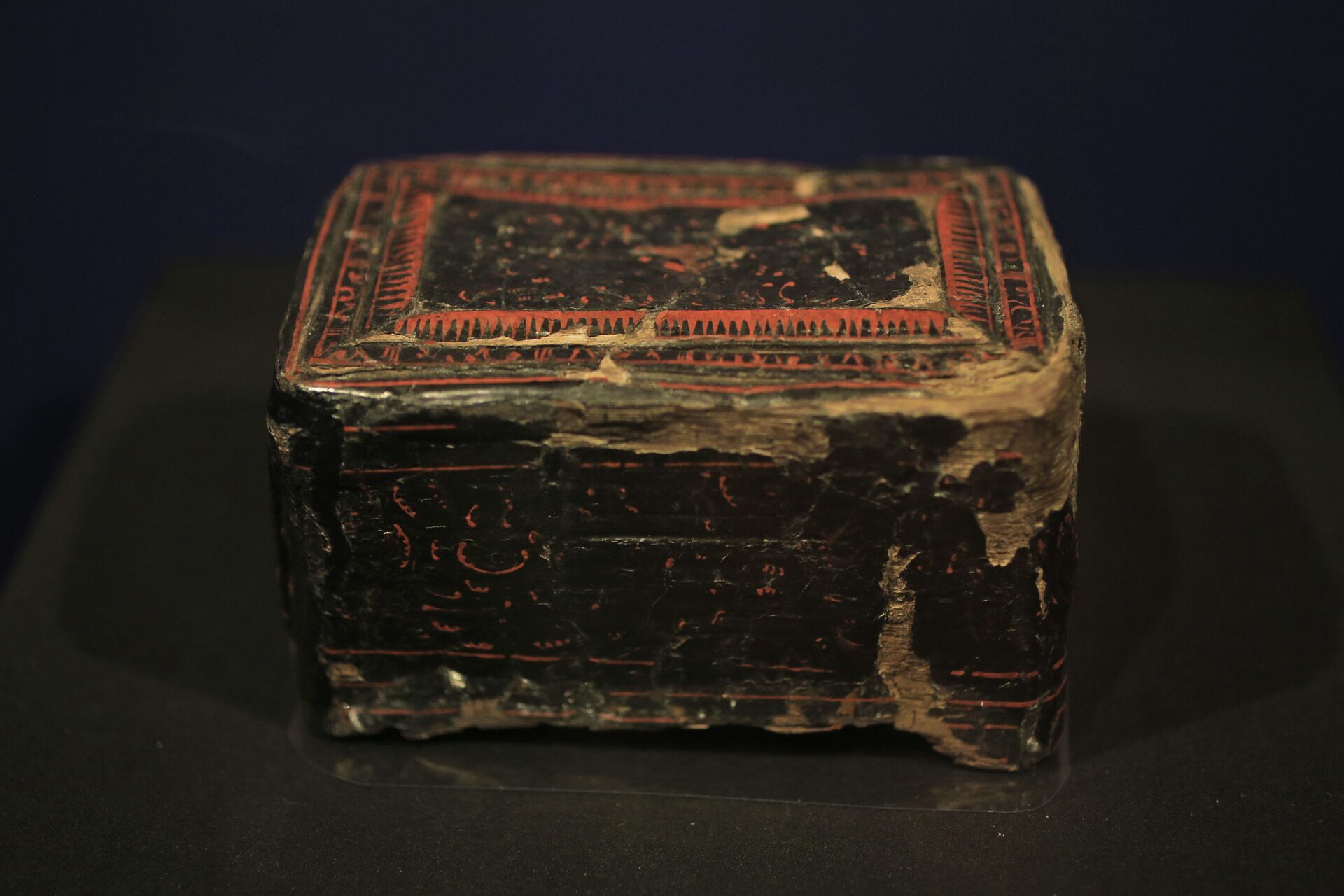https://sputnikglobe.com/20211026/amsterdam-museum-must-hand-scythian-gold-over-to-kiev-court-ruling-says-1090222657.html
Amsterdam Museum Must Hand Scythian Gold Over to Kiev, Court Ruling Says
Amsterdam Museum Must Hand Scythian Gold Over to Kiev, Court Ruling Says
Sputnik International
MOSCOW (Sputnik) - The Allard Pierson archaeological museum (APM) in Amsterdam has to hand over the Scythian gold collection from Crimea, the Amsterdam Court... 26.10.2021, Sputnik International
2021-10-26T13:42+0000
2021-10-26T13:42+0000
2024-06-23T18:32+0000
netherlands
gold
europe
russia
ukraine
scythian gold
crimea
https://cdn1.img.sputnikglobe.com/img/101518/99/1015189937_0:257:2731:1793_1920x0_80_0_0_eee15e5a8f031595a97e435c0b583a20.jpg
The decision was slammed by Crimean head Sergei Aksyonov, who called the ruling "outrageous" and said it "covers up" the illegal seizure of property.At the same time, Crimean Culture Minister Arina Novoselskaya said that the verdict runs counter to international regulations related to museum affairs.The collection items will remain in the depositories of the Amsterdam museum either for three months, which are allotted for cassation or during the consideration of the cassation, Rob Meyer, the lawyer of Crimean museums, said.The legal battle over the Scythian gold erupted after the Crimea reunited with Russia in March 2014. The collection was loaned to an Amsterdam museum from four Crimean museums for a temporary exposition. However, the museum decided against sending the collection to either Crimea or Ukraine and instead wanted to wait for a settlement or a court decision.
netherlands
ukraine
crimea
Sputnik International
feedback@sputniknews.com
+74956456601
MIA „Rossiya Segodnya“
2021
Sputnik International
feedback@sputniknews.com
+74956456601
MIA „Rossiya Segodnya“
News
en_EN
Sputnik International
feedback@sputniknews.com
+74956456601
MIA „Rossiya Segodnya“
Sputnik International
feedback@sputniknews.com
+74956456601
MIA „Rossiya Segodnya“
netherlands, gold, europe, ukraine, scythian gold, crimea
netherlands, gold, europe, ukraine, scythian gold, crimea
Amsterdam Museum Must Hand Scythian Gold Over to Kiev, Court Ruling Says
13:42 GMT 26.10.2021 (Updated: 18:32 GMT 23.06.2024) MOSCOW (Sputnik) - The Allard Pierson archaeological museum (APM) in Amsterdam has to hand over the Scythian gold collection from Crimea, the Amsterdam Court of Appeal ruled on Tuesday.
"The APM has to hand over the Crimean treasures to the Ukrainian State for safekeeping until the situation in Crimea has stabilised", the court ruling read.
The decision was slammed by Crimean head Sergei Aksyonov, who called the ruling "outrageous" and said it "covers up" the illegal seizure of property.
"An outrageous, unfair, and illegal decision, albeit expected, given the bias of European courts and their hostile attitude towards Russia and Crimea", Aksyonov wrote on his Telegram channel.
At the same time, Crimean Culture Minister Arina Novoselskaya said that the verdict runs counter to international regulations related to museum affairs.
The collection items will remain in the depositories of the Amsterdam museum either for three months, which are allotted for cassation or during the consideration of the cassation, Rob Meyer, the lawyer of Crimean museums, said.
The legal
battle over the Scythian gold erupted after the Crimea reunited with Russia in March 2014. The collection was loaned to an Amsterdam museum from four Crimean museums for a temporary exposition. However, the museum decided against sending the collection to either Crimea or Ukraine and instead wanted to wait for a settlement or a court decision.



